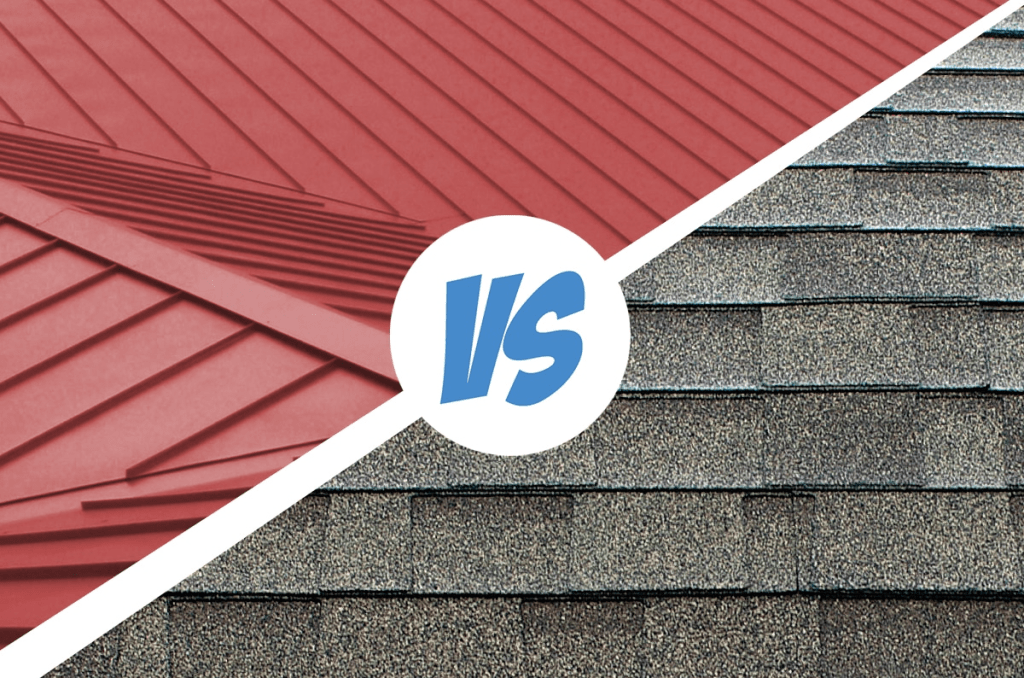When considering roofing options, the question often arises: Are metal roofs cooler than shingles? Understanding how different roofing materials impact the temperature inside your home can guide you towards making a more informed decision. In this comprehensive article, we will delve into the thermal properties of metal roofs compared to traditional shingles, helping you understand the potential benefits and considerations.

Understanding Thermal Properties: Are Metal Roofs Cooler Than Shingles?
To address the question are metal roofs cooler than shingles, we need to examine several key factors:
- Solar ReflectanceMetal roofs are known for their high solar reflectance, meaning they reflect a significant portion of the sun’s radiant heat away from the building. This reflective property can help keep the roof surface cooler during hot days, reducing the amount of heat transferred into the attic and living spaces below. In contrast, traditional asphalt shingles absorb more solar heat, which can contribute to higher indoor temperatures.
- EmissivityEmissivity refers to the ability of a material to radiate absorbed heat. Metal roofs typically have high emissivity, allowing them to release any absorbed heat quickly once the sun sets or cloud cover reduces. This quick cooling effect can contribute to lower nighttime temperatures compared to roofs with lower emissivity, such as asphalt shingles.
- Insulation and VentilationWhile the surface temperature of the roof plays a significant role in overall cooling efficiency, proper insulation and ventilation are also crucial factors. Good insulation reduces heat transfer from the attic to the living spaces, while adequate ventilation helps dissipate any heat that does accumulate in the attic space. Metal roofs can work effectively with insulation and ventilation systems to maintain cooler indoor temperatures.
Benefits of Cooler Roofing: Energy Efficiency and Comfort
Choosing a cooler roof, such as metal over shingles, offers several advantages:
- Reduced Cooling Costs: By reducing the amount of heat absorbed into the home, metal roofs can help lower cooling costs during hot weather.
- Improved Comfort: Cooler indoor temperatures mean a more comfortable living environment, especially in regions with hot climates or during summer months.
- Extended Roof Lifespan: The reduced thermal stress on metal roofs compared to shingles can contribute to longer roof lifespan and lower maintenance costs over time.
Read too: How To Replace Roof Shingles That Blew Off: A Comprehensive Guide
Considerations and Practical Applications
While the thermal benefits of metal roofs are clear, several considerations should be taken into account:
- Initial Cost: Metal roofing materials and installation costs can be higher than traditional shingles. However, the long-term energy savings and durability of metal roofs can offset this initial investment.
- Climate Factors: The effectiveness of metal roofs in reducing indoor temperatures may vary depending on the local climate, roof orientation, and the specific roofing materials used.
- Aesthetic Preferences: Beyond thermal performance, homeowners may also consider the aesthetic appeal and architectural compatibility of metal roofs compared to traditional shingles.
Conclusion
In conclusion, when asking are metal roofs cooler than shingles, the answer lies in their superior thermal properties and ability to reflect solar heat. Metal roofs offer a compelling choice for homeowners looking to enhance energy efficiency, improve indoor comfort, and extend the lifespan of their roofing system. By understanding these benefits and considerations, you can make a well-informed decision that best suits your home and climate.
Explore more insights into roofing materials and energy-efficient solutions to enhance your home’s comfort and sustainability.



Leave a Reply